
Tobia Zambotti stuffs Couch-19 with more than 10,000 used face masks
Italian designer Tobia Zambotti has used discarded single-use masks as the stuffing for a sofa to call attention to the amount of plastic waste being generated as a result of the coronavirus pandemic.
Named Couch-19 as a direct reference to Covid-19, the design is filled with personal protective equipment (PPE) that was collected by citizens of Pergine Valsugana, Zambotti's hometown in the north of Italy.
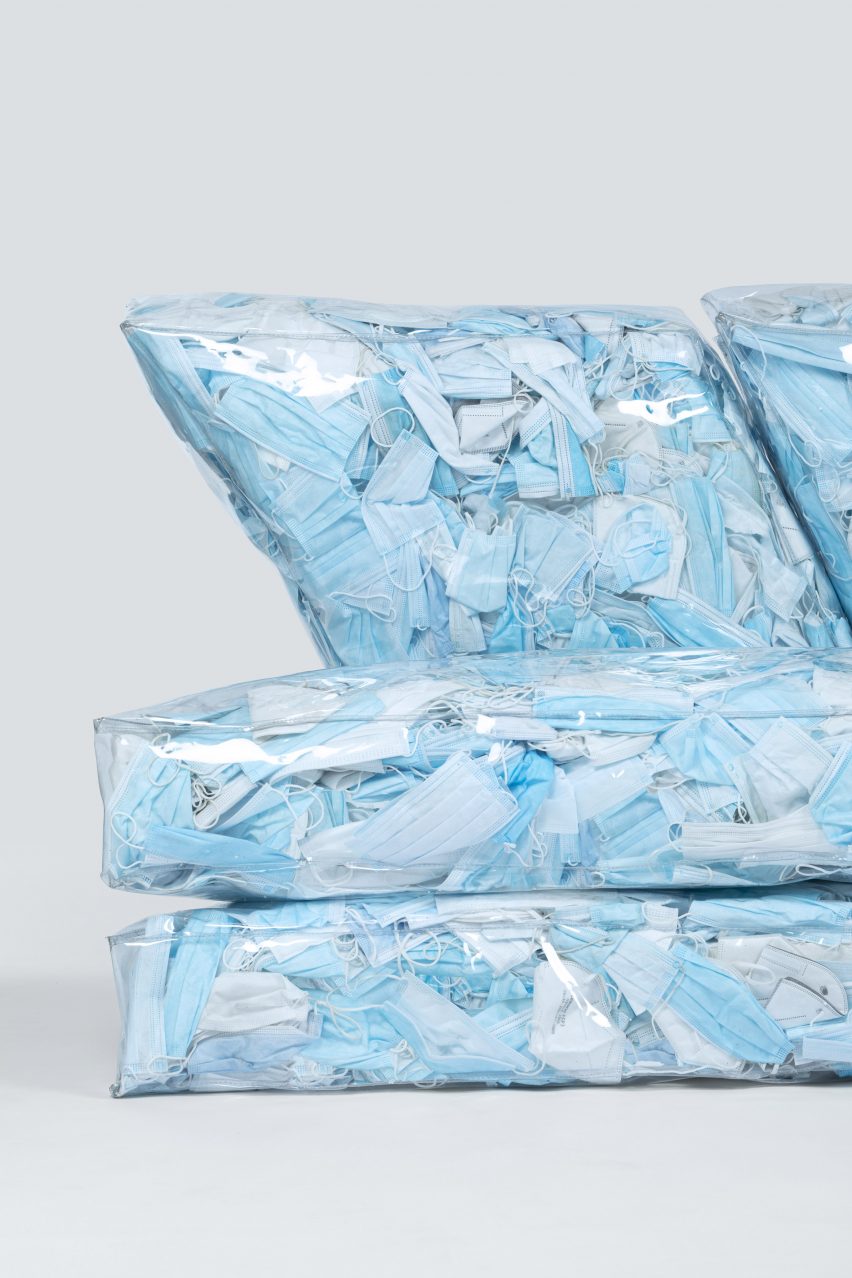
The light blue masks are covered in clear PVC to resemble the tip of an iceberg as a nod to the fact that the 10,000 face coverings used to create the sofa are only a fraction of the 129 billion that have been thrown away globally every month since the start of the pandemic.
Estimates suggest that around 75 per cent of these will end up in landfill or floating in our waterways, where over the course of around 450 years they will break down into microplastics and ingested by marine life.
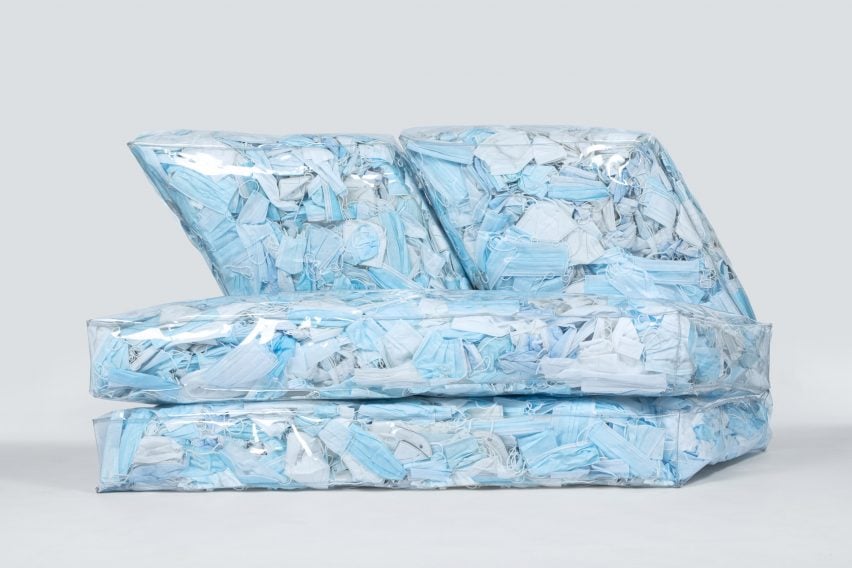
"We are facing a pandemic of easy, cheap and single-use plastic solutions like masks, gloves and face shields, even though there are great sustainable alternatives and we all know how important it is to use them," Zambotti told Dezeen.
"My goal with this project was to transform something that is considered trash into something meaningful."
The final design resembles Harry Nuriev's Balenciaga Sofa, which saw piles of the brand's old, discarded garments trapped behind clear plastic sheeting.
But in this case, Zambotti recruited volunteers via a Facebook post to safely collect littered masks off the street and save the ones they use daily in order to give them a new purpose.
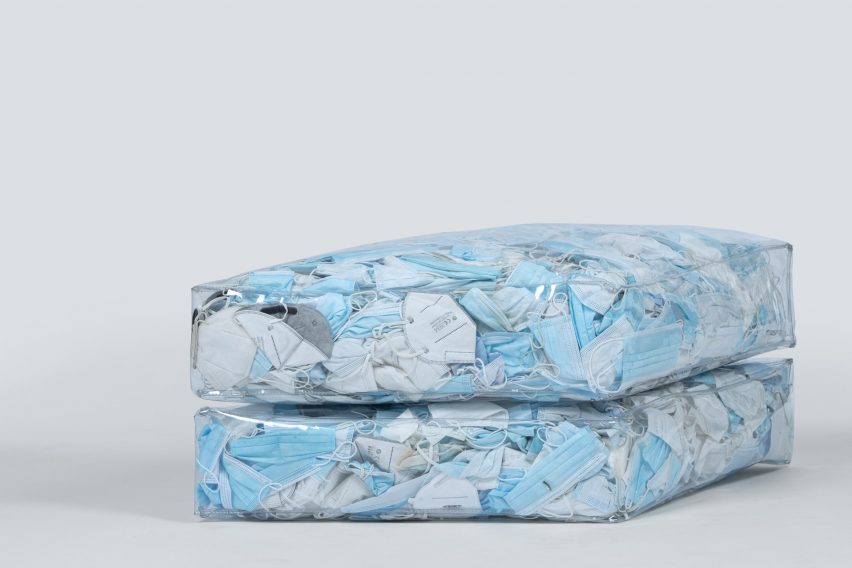
Even though coronavirus particles can only survive on masks for around seven days, Zambotti stored them in sealed plastic bags for a month in a bid to ensure that no traces were left behind. They were also disinfected with ozone spray, which has been shown to inactivate viruses similar to the one that causes Covid-19.
The masks were compacted into four modular, PVC-covered units, which can be combined into a number of seating configurations from a regular sofa to a chaise lounge.
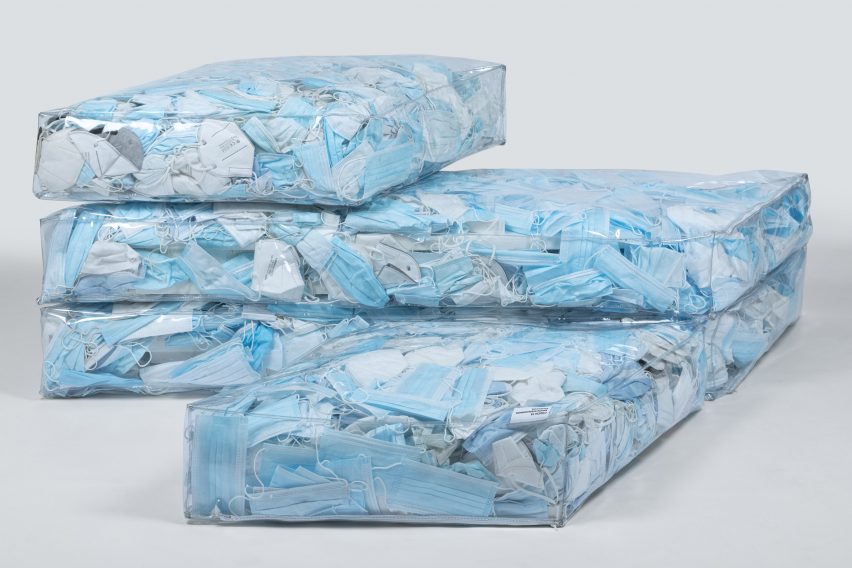
"The material had to be strong, transparent and 'icy'," Zambotti explained. "Plastic is guiltless if it's recyclable and the transparent crystal PVC I choose is 100 per cent recyclable."
In recent years, a number of environmentalists have started to challenge the efficacy of recycling in tackling plastic pollution, as studies have shown that while 400 million tons of the material are thrown away every year, only nine per cent of this is actually recycled.
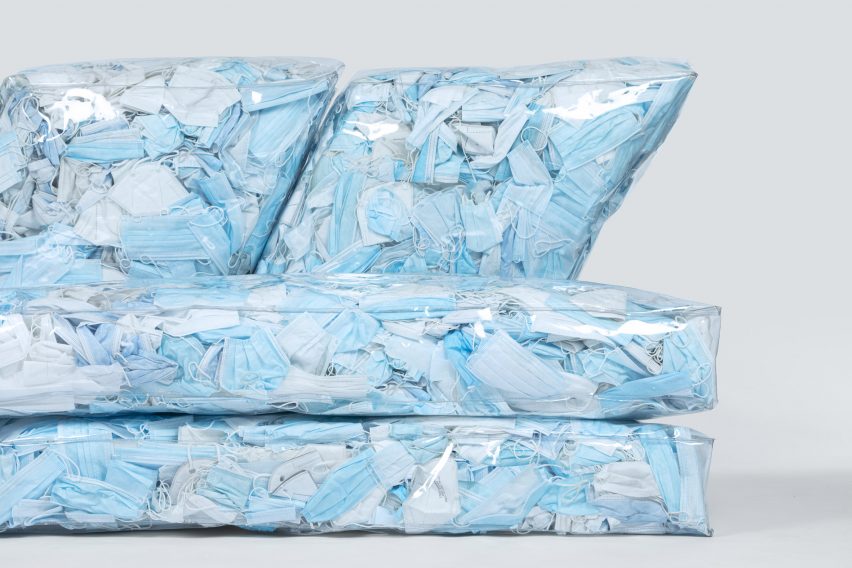
Since most plastic is made from fossil fuels, it also causes considerable carbon emissions through its extraction and refinement, whether it is ultimately recycled or not.
As a result, a number of designers have instead turned their focus towards improving reusable face masks, equipping them with integrated air purifiers and sound systems or adorning them with chains and tassels to make them feel more like desirable accessories.
Photographt is by Raffaele Merler.